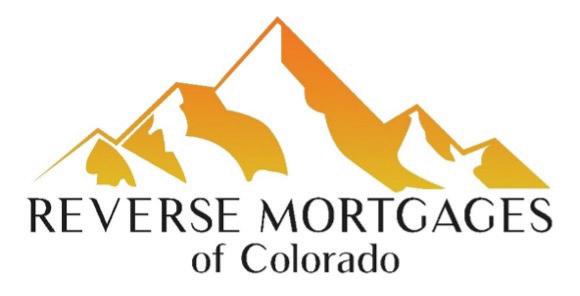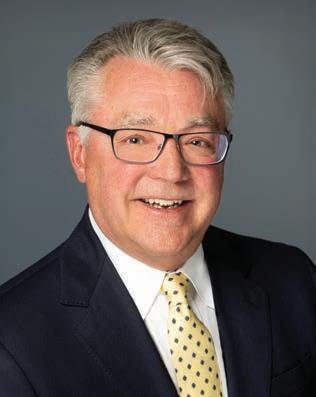
3 minute read
Tra cking survivor shares her journey
Survivor is healing and moving forward
BY DANA KNOWLES, JULIO SANDOVAL ROCKY MOUNTAIN PBS
Mel is a mother of three, a grandmother of four, and works part time with people who are intellectually and developmentally disabled. She wants people to know that she’s more than a survivor of human tra cking.
Even though those experiences were a huge part of her life, Mel is healing and moving forward.
“ is healing becomes such a big responsibility on the victims of these crimes,” explained Mel, adding that resting is often part of the process. “Sometimes you get tired of this idea that because you’re a survivor and you’ve handled (human tra cking), that you can handle anything.”
Mel, who asked that Rocky Mountain PBS not use her last name, explained how she started running away from an abusive situation at home when she was 15. Two years later, she met an older man who started grooming her. e man made
Mel feel loved and special.
“He started to treat me like a princess. is man was giving me all this attention, and all this stu , and he put a big diamond ring on my nger,” she said. “He made me feel very secure.”
Mel said the man eventually convinced her to go with him to New York City, where she was immediately put on the street and forced to prostitute herself.
“It was scary and hard. I got arrested with a bunch of other girls one night and ended up in a Bronx, New York jail.”
It was in jail when Mel realized there was no way out of her situation.
“ ere were so many girls that were being picked up like me. We were handcu ed together, and held in a cell all weekend together, put in front of a judge, and sent back out on the street,” Mel recalled.
Marianna Kosharovsky, the founder and executive director of Alight, an organization that helps connect human tra cking survivors with attorneys, said tra ckers are extremely savvy when it comes to targeting their victims.
“Tra cking is not about movement, it’s about pro ting from some-
Turn To The Colorado Sun For News Across The State
The Colorado Sun is a journalist-owned, award-winning news outlet that strives to cover all of Colorado so that our state — our community — can better understand itself.
In this way, The Sun contributes to a more vibrant, informed and whole Colorado.
The Sun, launched in 2018, is committed to fact-based, in-depth and non-partisan journalism. It covers everything from politics and culture to the outdoor industry and one else’s vulnerability. Tra ckers know when someone has a vulnerable moment in their life and then they gure out how can they pro t as much as they can from this person,” said Kosharovsky.
Alight has an app with the idea of making it easy for survivors to nd attorneys. e organization has tasked itself with providing as many free legal services as possible for survivors.
Attorneys helped Mel expunge an old arrest warrant from the early 90s. Since 2017, Kosharovsky said Alight has helped more than 200 survivors in 33 states, as well as Washignton, D.C.
According to the U.S. Department of State, there is an average of 24.9 million tra cking victims worldwide at any given time. De ned as a crime of exploitation, human tra cking a ects people of all races, ages and genders. Victims are pressured into providing labor — including sex as a form of labor — through the use of force, fraud or coercion.
“ e most important thing people need to know about human tra cking is that it is (as) simple as going out on a date with someone that you’re not all that familiar with,” Mel ex- education.
Now, The Colorado Sun co-owns this and other Colorado Community Media newspapers as a partner in the Colorado News Conservancy. The Sun is CCM’s partner for plained.

Tra cking can happen in industries such as landscaping, hospitality and restaurants, construction, massage parlors, childcare, domestic work, factories, and janitorial services. Many of these workplaces are in low-wage industries with high turnover rates.
“Domestic tra cking is the majority of the tra cking. It’s not taking place in other countries and it doesn’t necessarily require someone to be bound; we pass them on the streets every day,” explained Kosharovsky.
For Mel, taking care of herself and spending time with her family is top priority. She says healing can feel like a full-time job, so self-care is paramount.
“Every day is a healing journey, and I don’t think it’s easy; there are days I don’t want to deal with it. I get tired of being called a survivor.” is story is from Rocky Mountain PBS, a nonpro t public broadcaster providing community stories across Colorado over the air and online. Used by permission. For more, and to support Rocky Mountain PBS, visit rmpbs.org. statewide news.
For Colorado Sun stories, opinions and more, and to support The Sun’s misssion as a member or subscriber, visit coloradosun. com.







